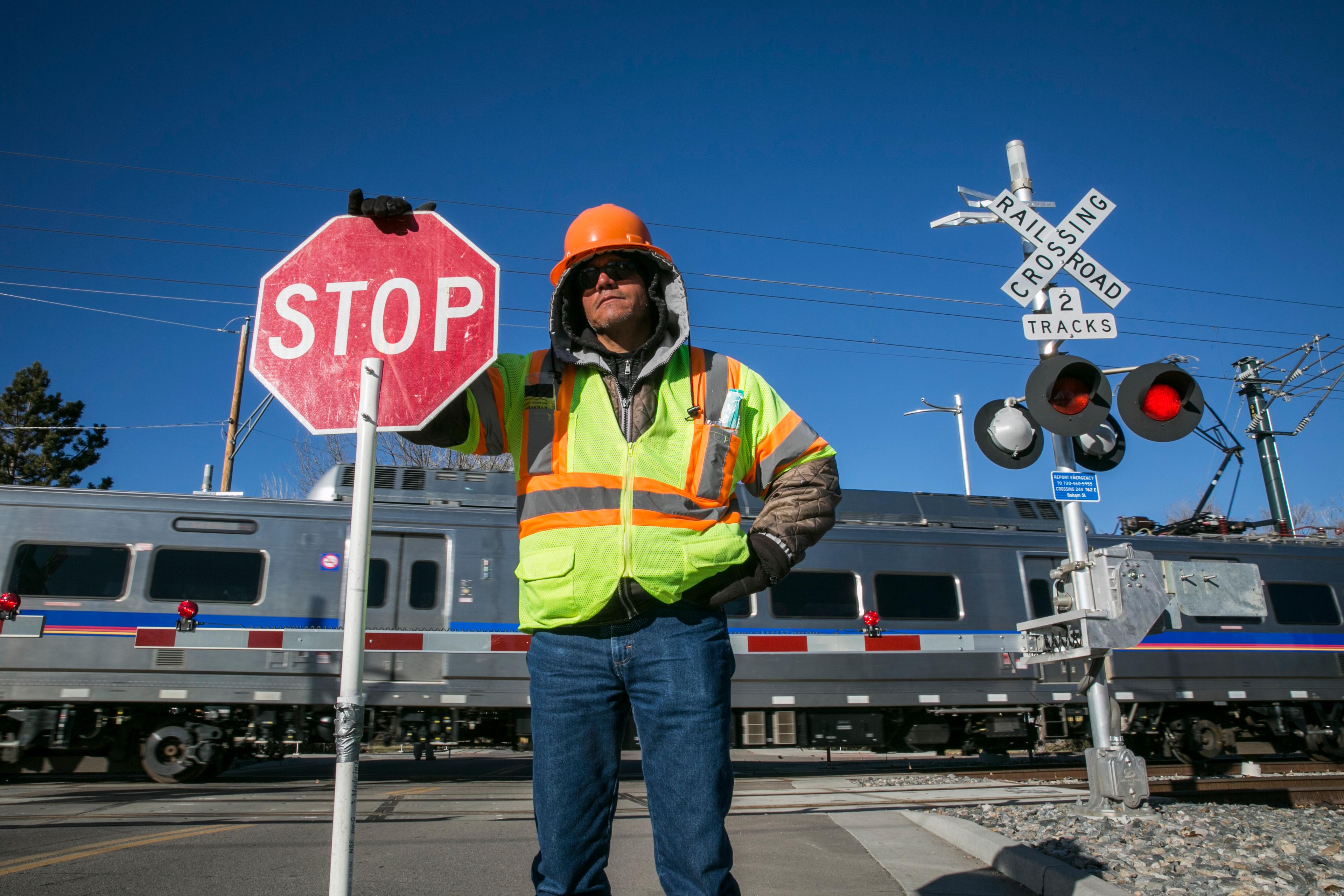
The Colorado Supreme Court on Monday handed the Regional Transportation District what could be a final victory in its years-long legal battle with the company that built and operates some of its commuter rail lines.
Denver Transit Partners, which is responsible for the A-, B-, and G-lines, sued RTD in 2018 demanding to be reimbursed for $111 million in costs related to operational issues in the A-Line’s early days. Those including flaggers that stood guard at all posted crossings for months on end.
RTD countered with its own lawsuit, asking for $27 million in damages, alleging the contractor had tried to shift blame about safety and performance issues on the A-Line, which runs from downtown Denver to Denver International Airport. The G Line, which runs from Denver to the western suburbs, was also at issue in the lawsuits.
A Denver District Court judge finally ruled in 2023, denying both RTD and the private company’s demands for payment from each other. Denver Transit Partners then appealed the decision, but the state Court of Appeals upheld the District Court’s opinion.
On Monday, the state Supreme Court denied the company’s petition for a review of the case.
That denial “brings to close years of litigation,” RTD spokesman Stuart Summers wrote in an email. “Today’s decision once again affirms RTD’s longstanding conviction that Denver Transit Partners is responsible for the costs associated with its initial failure to deliver a system consistent with federal and state standards, as promised.”
“RTD is pleased to see a conclusion, and the agency looks forward to moving past the years-long legal dispute,” Summers continued. “RTD and DTP remain committed to collaboratively working to serve the current and future transit needs of all commuter rail customers.”
Nate Morgan, Denver Transit Partners’ CEO and project director, acknowledged the court’s ruling and echoed Summers’ desire to stay focused on keeping the trains running on time.
Asked whether the state Supreme Court’s denial meant the company’s opportunities for legal challenges were exhausted, Morgan said he had “to wait and let the legal team figure that one out.”









